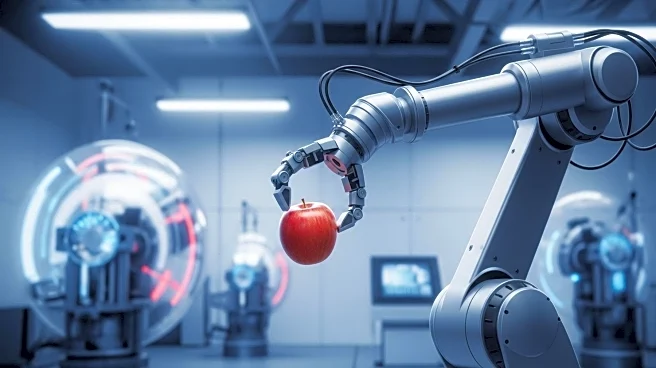What is the story about?
What's Happening?
Food and drink manufacturers are being advised to carefully plan their digital transformation strategies to avoid costly failures. According to Oliver Stone from ITI Group, many manufacturers rush into digital projects without a clear roadmap, leading to disappointing results. The industry faces challenges such as rising input costs, labor shortages, and tighter regulations, which pressure companies to adopt quick fixes. However, these reactive measures often fail to deliver long-term improvements. Stone emphasizes the importance of setting clear priorities, measuring changes, and fixing foundational processes before implementing new technologies. He suggests that manufacturers should focus on their most pressing issues, whether they are cost, compliance, customer, or employee-driven, to make informed technology choices.
Why It's Important?
The significance of this guidance lies in its potential to enhance the efficiency and competitiveness of the U.S. food and drink manufacturing sector. By avoiding hasty and poorly planned tech transformations, manufacturers can prevent resource wastage and ensure that investments lead to tangible improvements. This approach not only helps in maintaining profitability amidst economic pressures but also supports compliance with regulatory standards. Successful digital transformations can lead to increased operational efficiency, better supply chain management, and improved product quality, ultimately benefiting consumers and the industry as a whole. Companies that effectively implement these strategies may gain a competitive edge, while those that do not risk falling behind.
What's Next?
Manufacturers are encouraged to start with small pilot projects that can demonstrate quick wins and build confidence for larger-scale transformations. By proving the value of new technologies early on, companies can secure further investment and sustain momentum. Engaging workers in the transformation process is also crucial, as it helps in reducing resistance and ensuring successful implementation. As the industry continues to face external pressures, the focus will likely remain on strategic planning and execution to achieve long-term resilience and competitiveness.
Beyond the Headlines
The push for effective digital transformation in the food and drink sector also highlights broader trends in the manufacturing industry, such as the integration of Lean Six Sigma principles and the increasing reliance on data-driven decision-making. These developments reflect a shift towards more agile and responsive manufacturing processes that can adapt to changing market demands and regulatory environments. Additionally, the emphasis on worker engagement and communication underscores the importance of human factors in successful technology adoption.















